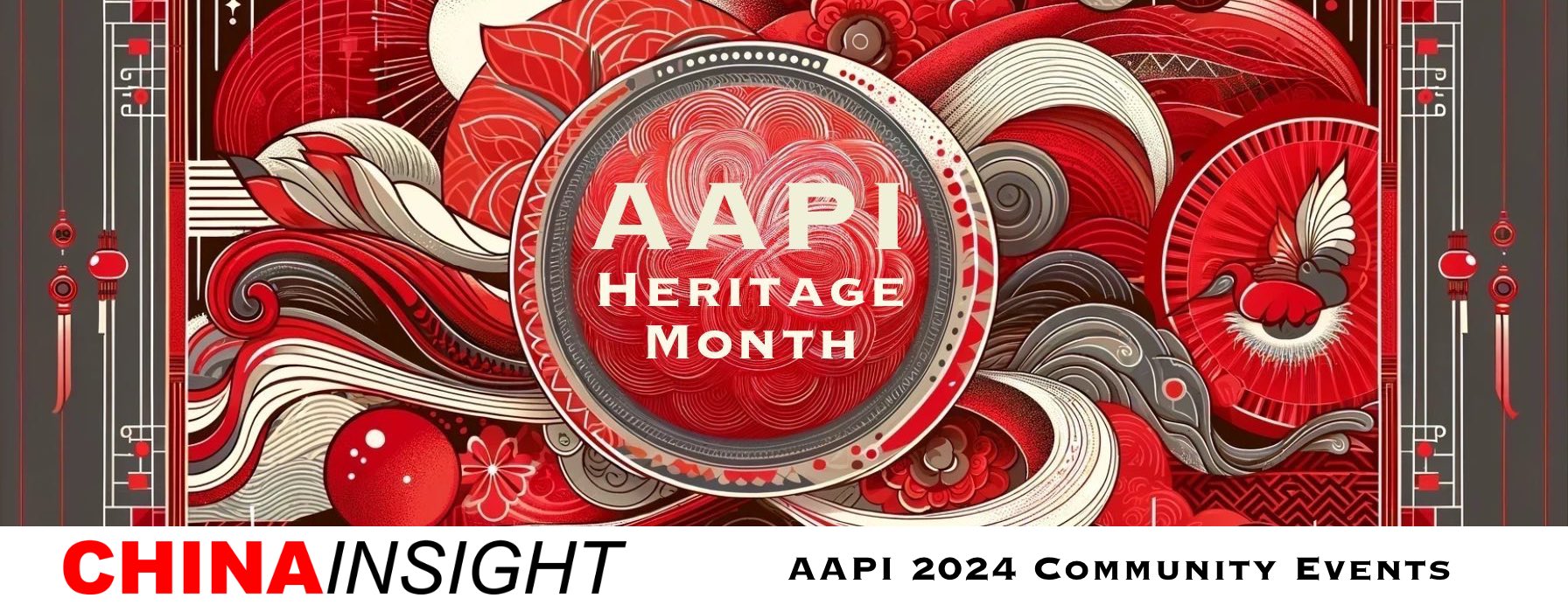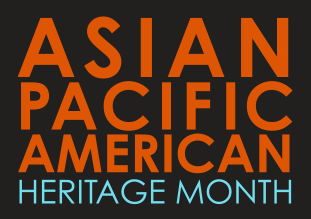By Elaine Dunn | May 2023
May is designated Asian American Pacific Islander Heritage Month by Congress in 1990. May was chosen because May 7, 1843, marked the arrival of the first Japanese immigrants to the U.S. and May 10, 1869, marked the completion of the first transcontinental railroad on the backs of numerous Chinese labourers.
Therefore, this is a most appropriate time to acknowledge the achievements and contributions of Asian Americans to America and their resilience and determination in overcoming prejudicial challenges!
Chinese immigrants to America first arrived in the mid-1800s, and played a major role in the California gold rush as well as the building of the transcontinental railway. They have helped America grow and develop in many and various fields, from arts to medicine, and to science and technology.
Known for their strong work ethic, Americans with Chinese descent have made significant contributions to this country, from the labourers working on the transcontinental railway to developing the atom bomb. However, many of these accomplishments never made it into mainstream history.
Science and technology
One of the groundbreaking periods was during the 1940s and 1950s in the development of atomic science. Columbia University physicist Dr. Wu Chien-Shiung’s research and work with theoretical physicists Dr. Lee Tsung-Dao, also from Columbia University, and Dr. Frank Yang (University of Chicago) led to the latter two winning the Nobel Prize in 1957. All three Ph.D.’s were born in China. Their work was instrumental in the Manhattan Project. Other notable individuals include:
· China-born physicist, Dr. Fung Yuan-Cheng made significant contributions to the field of bioengineering, specifically in the study of biomechanics. Fung earned his Ph.D. from the California Institute of Technology.
· Dr. Tang Ching-Wan, a physical chemist originally from Hong Kong, was instrumental in the development of organic light-emitting diodes (OLEDs), a technology used in flat-screen TVs and smartphones.
· Second-generation Taiwanese American Jennie Yang is a materials scientist who developed new materials for use in clean energy technologies. She also worked on developing advanced batteries and other energy storage systems.
· Shanghai-born Andrew Yao is a computer scientist and mathematician who made significant contributions to the theory of algorithms and quantum computing. He was awarded the Turing Award – the highest honour in computer science — in 2000 for his work in the field. He is recognized for contribution to secure computing and quantum computation and had taught at universities on both coasts.
· St. Louis-born Steven Chu is a Nobel Prize-winning physicist and former U.S. Secretary of Energy. Chu’s research has focused on laser cooling and trapping of atoms, which has applications in nanotechnology and quantum computing. His work resulted in, but not limited to, the accuracy of atomic clocks used in space navigation and design of atomic lasers for manipulating electronic circuits at an extremely fine scale.
Entertainment
In general, not a field that jumps to mind when it comes to Asians. However, Chinese Americans have also made significant inroads, having created notable works that have been featured in museums, galleries, and the film industry
· Anna May Wong was the first Chinese American movie star and is considered a pioneer of the film industry. Born in Los Angeles, she moved to Europe to avoid being typecast in Hollywood. She starred in more than 50 films, including “The Toll of the Sea” (1922), “Piccadilly” (1929), and “Shanghai Express” (1932). Despite facing racism and discrimination in Hollywood, Wong persevered and inspired generations of Asian American actors.
· Another U.S.-born actor was Bruce Lee, known for his martial arts prowess. He grew up in Hong Kong and was introduced to the entertainment field by his father, an opera singer. Sent back to the U.S. to finish high school, he began developing his own martial arts technique – jeet kune do –and started giving private lessons to Hollywood stars. Lee is widely regarded as one of the greatest martial artists of all time. He starred in several iconic films, including “Enter the Dragon” (1973) and “Game of Death” (1978), and helped to popularize martial arts in the United States.
· Taiwanese Ang Lee is a critically acclaimed filmmaker who has won multiple Academy Awards for Best Director. He is known for his diverse range of films, including “Crouching Tiger, Hidden Dragon” (2000), “Brokeback Mountain” (2005), and “Life of Pi” (2012). Lee’s work has helped to bring greater visibility to Asian American filmmakers in Hollywood.
· And, of course, the recent Oscar-winning cast from “Everything Everywhere All at Once.”
Entrepreneurs
There have been many successful businesses and startups led by Chinese Americans, especially in Silicon Valley, that have shaped the way we communicate, work and live in the digital age.
· The slew of startups includes Zoom Video Conferencing, founded by Eric Yuan. Yuan moved from China to Silicon Valley in 1997 at the age of 27 “to join the tech boom.” He pitched a smartphone-friendly video conferencing system to his employer and, when it was rejected, he quit to build his own company, which grew exponentially during the pandemic! Forbes puts his net worth at $3.4 billion.
· Steven Chen cofounded YouTube in 2005. Chen was 7 when his family emigrated from Taiwan to Illinois. Before completing his undergrad degree, he accepted an offer from a California company that became PayPal, where he met his two future partners in starting YouTube. In 2014, Chen received the Carnegie Foundation’s “Great Immigrants” award, which celebrates achievements and contributions by immigrants to American society.
· Another major player is Jerry Yang who co-founded Yahoo! in 1994. Yahoo! became one of the most successful internet companies of the early internet era, and Yang served as its CEO from 2007 to 2009.
· Tony Hsieh was born in Illinois in 1973 and grew up in the Bay Area of California. After attending Harvard University, he co-founded the internet advertising network LinkExchange, which was sold to Microsoft for $265 million in 1998. In 2000, Hsieh joined Zappos full-time as CEO and helped to grow the company into one of the largest online shoe retailers in the world. Hsieh was known for his unconventional management style, which emphasized a strong company culture and customer service. Sadly, Hsieh died from a house fire in 2020, but his legacy and leadership in the e-commerce industry continue to inspire many.
Politics
Though politics is not in our blood, Chinese Americans have made a name in this arena as well. Through their leadership and advocacy, the following individuals have helped to create a more diverse and inclusive government.
· Judy Chu is a U.S Representative from California and the first Chinese American woman elected to Congress (in 2009). She has been a vocal advocate for Asian American and immigrant rights and has championed issues such as healthcare access and environmental protection.
· Hiram Fong was the U.S Senator from Hawaii from 1959 to 1977. He was the first Asian American to serve in the Senate. He was also the first Chinese American to run for president, seeking the Republican nomination in 1964.
· Taipei-born Elaine Chao immigrated to the U.S. at the age of 8. With an undergraduate degree in economics and an MBA from Harvard, Chao worked in international banking before serving as the Secretary of Labor under President George W. Bush and as the Secretary of Transportation under President Donald Trump. She was the first Asian American woman to serve in a presidential cabinet position and has been a strong advocate for transportation infrastructure and workforce development.
Throughout the years, China Insight had featured many other Chinese Americans and their contributions, such as Olympic figure skaters, local photographer and urban planner, veterans, creatives, etc.
And not to be forgotten, though they may not be famous in their own right, all the hard-working Chinese restauranteurs, of course! Where would we all be if the many mom-and-pop-run Chinese restaurants were not around? Peking duck, lobster in black bean sauce, sweet and sour pork, potstickers, kung pao chicken … time to go eat Chinese!
Yes, Chinese Americans have definitely enriched the lives of all Americans.


